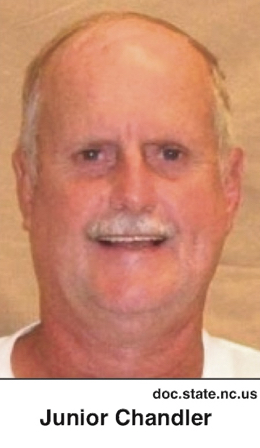Rascals case in brief
In the beginning, in 1989, more than 90 children at the Little Rascals Day Care Center in Edenton, North Carolina, accused a total of 20 adults with 429 instances of sexual abuse over a three-year period. It may have all begun with one parent’s complaint about punishment given her child.
Among the alleged perpetrators: the sheriff and mayor. But prosecutors would charge only Robin Byrum, Darlene Harris, Elizabeth “Betsy” Kelly, Robert “Bob” Kelly, Willard Scott Privott, Shelley Stone and Dawn Wilson – the Edenton 7.
Along with sodomy and beatings, allegations included a baby killed with a handgun, a child being hung upside down from a tree and being set on fire and countless other fantastic incidents involving spaceships, hot air balloons, pirate ships and trained sharks.
By the time prosecutors dropped the last charges in 1997, Little Rascals had become North Carolina’s longest and most costly criminal trial. Prosecutors kept defendants jailed in hopes at least one would turn against their supposed co-conspirators. Remarkably, none did. Another shameful record: Five defendants had to wait longer to face their accusers in court than anyone else in North Carolina history.
Between 1991 and 1997, Ofra Bikel produced three extraordinary episodes on the Little Rascals case for the PBS series “Frontline.” Although “Innocence Lost” did not deter prosecutors, it exposed their tactics and fostered nationwide skepticism and dismay.
With each passing year, the absurdity of the Little Rascals charges has become more obvious. But no admission of error has ever come from prosecutors, police, interviewers or parents. This site is devoted to the issues raised by this case.
On Facebook
Click for earlier Facebook posts archived on this site
Click to go to
Today’s random selection from the Little Rascals Day Care archives….
Click for earlier Facebook posts archived on this site
Click to go to
Today’s random selection from the Little Rascals Day Care archives….
‘Have you ever stopped to consider…?’
July 31, 2013
“Have you ever stopped to consider what the statistical odds must be against the following allegations made by the prosecution? How could the following all be true?
“1. That seven child abusers would somehow all show up at the Little Rascals Day Care during the same time period.
“2. That out of these seven alleged abusers not one had any record of any sexual misbehavior in their past.
“3. That out of all seven of these alleged abusers not one was found to be in possession of any child pornography or other suggestive materials.
“4. That with multiple-hundreds of alleged abuses claimed to have taken place, not one single piece of ‘hard’ evidence was ever found. Nor was there a single adult witness to any behavior even suggestive of abuse.
“5. That out of all seven of these alleged abusers, not one would be willing to testify against the others in return for easier treatment.”
– From a Feb. 22, 1994, letter sent to prosecutors and the press by Jeffrey Keimer of Portola Valley, Calif.
These are questions that occurred to someone following the Little Rascals case from 3,000 miles away. Too bad they seem not to have occurred to so many prosecutors, therapists, parents, reporters and jurors. Up close, was the “ritual abuse” narrative simply too mesmerizing?
Chandler’s sentence designed to lock him up forever
 Nov. 8, 2015
Nov. 8, 2015
“The latest obstacle to Gerald Amirault’s freedom came without fanfare. A three-member panel of the Massachusetts Department of Corrections has now decided that, since the prisoner has refused participation in treatment programs for sex offenders, he was considered to be ‘in denial.’ Permission for him to appear before the Board that could grant early parole would therefore be denied.”
– From “How to Extort a Confession” in the Wall Street Journal (April 22, 2002)
Steadfast in his supposed “denial,” Amirault wouldn’t be paroled until 2004 – 18 years into his 40-year sentence.
Compared with Junior Chandler, however, he was lucky. Chandler’s two consecutive life sentences have made him ineligible for parole. For a brief moment during his long and maddening appeals process, in 2008, it seemed those life sentences would be made concurrent – thus qualifying him for parole consideration. But a switch in judges, orchestrated by the attorney general’s office, vaporized that prospect.
A footnote: The North Carolina Department of Correction has its own Sexual Offender Accountability and Responsibility program. “Through psycho-educational modules, behavior techniques and empathy training,” its website says, “S.O.A.R. participants learn that sexually abusive behavior is both controllable and manageable.”
Junior Chandler recalls having been invited to participate, but …. “They said I had to admit I was guilty. I told them I couldn’t do that, because I hadn’t done anything…. What would you do?”
Ritual-abuse therapists, meet UFO debriefers
 Feb. 13, 2013
Feb. 13, 2013
“Can we say beyond a shadow of a doubt that any day-care operators in the country are innocent? No. Can we say that those who claim they were abducted by UFOs were not? No.
“(That) is not a frivolous comparison. The methodology used by therapists on the children is the same methodology used by UFO debriefers. The debriefers ask, Did you see a light? The therapists ask, Did you get taken to a secret tunnel? The debriefers ask, Did you feel a probe by the aliens? The therapists ask, Did Mr. Bob stick a knife in your vagina?
“When people, even fully functional members of their communities, regurgitate what they have been told about space probes, we call them lunatics. When children, after constant prodding, regurgitate what they have been told about intimate probes, we put people in prison.”
– From “Abusing Justice, in the Name of Children” by Ed Siegel in the Boston Globe (Sept. 8, 1995)
When will wheels of justice turn for Junior?
Sept. 23, 2013
There’s a bit of an update out of Raleigh on Junior Chandler’s prospects for clemency.
Billy Chandler, Junior’s brother, received this email last week from Pat Hansen in the Governor’s Clemency Office:
“Attorney Mark Montgomery filed a commutation request with this office at the end of Governor Perdue’s term in office. However, due to the volume of requests received, the request was not ‘officially reopened.’ Currently, we are working on all of the cases held over from the Perdue Administration. Unfortunately, I cannot tell you when your brother’s case will be reviewed.”
In North Carolina the governor’s clemency power covers both pardons and commutations. Here’s the stated distinction:
“Commutation – whereby an individual presently incarcerated and serving an active sentence has their sentence commuted or reduced by any number of years, months, or days, or to make parole eligible, or to time served which would release the individual immediately.
“Pardon – may be granted to those individuals who have maintained a good reputation in their community, following the completion of their sentence for a criminal offense. Ordinarily, an applicant must wait to apply until at least five years have elapsed since the applicant was released from State supervision (including probation or parole). A Pardon is merely an official statement attached to the criminal record that states that the State of North Carolina has pardoned the crime. A Pardon does not expunge or erase a criminal record….”
As much as the facts of Junior’s case call for a pardon, a commutation seems not quite as steep a challenge. However great “the volume of requests received,” Junior Chandler’s surely deserves to be at the top of the stack.











0 CommentsComment on Facebook